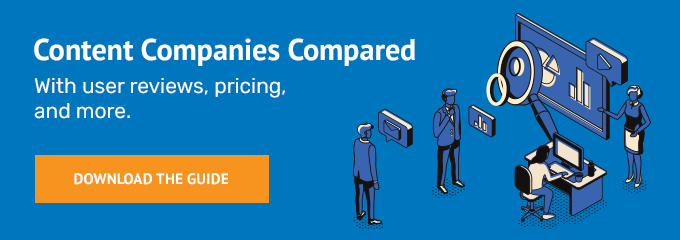
When you want to know about entrepreneurship, engineering, and technology, you might ask Elon Musk.
If you’re interested in social media and computer programming, you could hit up Mark Zuckerberg.
However, inquiring minds in the marketing sector invariably rely on Seth Godin, who never fails to deliver an astute (and often prescient) observation on the industry.
Godin isn’t just a heavyweight in content marketing. He’s also an entrepreneur, speaker, author, and all-around business expert. If you’re looking for advice about your content, though, he’ll never fail to deliver.
“[Content marketing] is all the marketing that’s left”

If you’re not producing content, you’re falling behind.
Plenty of marketing options exist, but Seth Godin predicted back in 2008 that “[Content Marketing] is all the marketing that’s left.” And he was right.
Maybe you’re experiencing excellent returns on social media or achieving excellent conversions through paid search. Both offer viable options for promoting your business. However, it all boils down to the quality of your content. People might click because of your advertising, but they stick around because of your content.
“Hard work is frightening. We shy away from hard work because inherent in hard work is risk. Hard work is hard because you might fail. You can’t fail at long work, you merely show up.”
Many people assume that, because they work 80 hours every week, they’ll inevitably succeed. Seth Godin disagrees. Long work isn’t necessarily smart work — or even hard work — because it says nothing about output quality or the amount of effort you’re exerting. If you spend 80 hours staring at a computer screen and hoping to receive a lightning bolt of inspiration for your next blog post, for example, you’re working long, but you’re not working smart or hard.
Godin goes on to say that hard work terrifies people because it involves risk. Once you put it out there, you face potential criticism. However, if you play it safe with the long work, nobody will ever read your content.
“The best way to motivate a monkey, of course, is to use [a] banana. Whenever the monkey walks into a new situation, all it wants to know is, ‘Where’s the banana?’ If the banana isn’t easy to see…the monkey is going to lose interest.”

Without a bright idea, your content fades to oblivion.
In his 2002 book “The Big Red Fez: How To Make Any Web Site Better,” Seth Godin urges readers to think of Internet users as monkeys. Stay with us here.
These monkeys come to your site in search of a banana. If they don’t find it, they’re off to another corner of the kingdom so they can scrounge up a banana elsewhere. Your content needs a special something that’s as attractive to human consumers as bananas are to monkeys. Without that banana, you’re speaking to an empty auditorium. Maybe it’s a captivating call-to-action that consumers can’t ignore. Perhaps it’s beautiful imagery, a metaphor that hits all the right emotional notes, or a spectacular analogy that helps laypeople understand a tricky concept.
Or maybe it’s an actual banana — you never know.
“Marketing is no longer about the stuff that you make but about the stories you tell.”
A great product doesn’t necessarily find an audience. In fact, it might never find sufficient financial backing to exit production. However, Seth Godin reminds us that stories can move products. If you can captivate your audience with a compelling story, you’ll have their attention for years. If you just have a great product, you’ll have their attention only until another shiny object materializes.
In fact, Godin goes so far as to say that people don’t buy products at all. Instead, they invest in “relations, stories and magic.” You owe it to your content marketing strategy to heed those words.
“Why waste a sentence saying nothing?”
This rhetorical question — one posed by Seth Godin himself — has sparked plenty of debate on the Internet. It’s highly intuitive, though.
He means that content alone isn’t enough. If you’re not contributing something valuable to the conversation, you’ll drive away more prospects than you’ll attract. An understanding of syntax, grammar, and narrative voice can elevate a piece of content from passable to extraordinary. If you can’t write high-quality content, find someone who can.
Speaking of which, if you’re looking for thoughtful, professional content, take a minute to learn how our service works.
